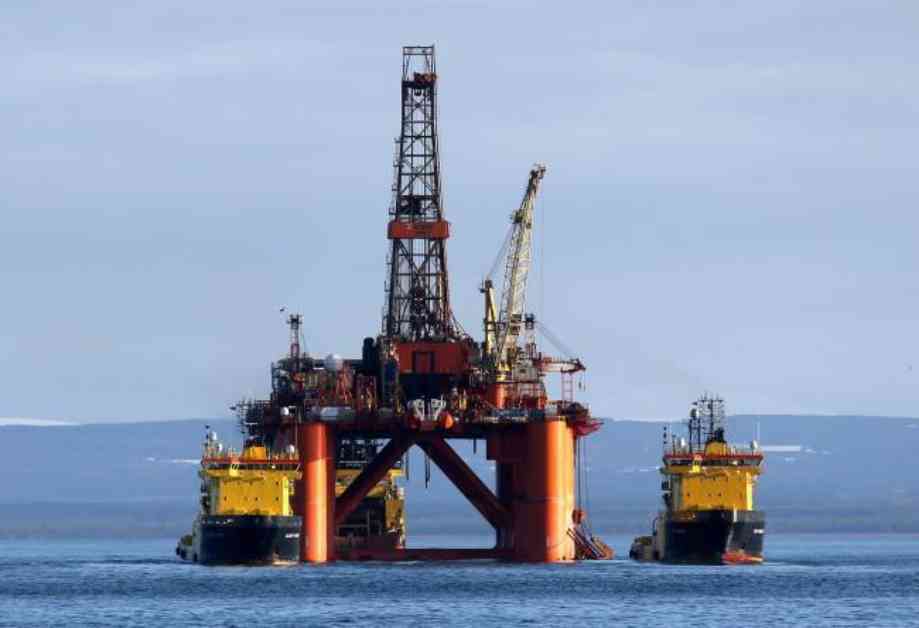Oil Companies Concealing True Environmental Impact Through Underreporting Spills
The oil industry, often referred to as “marking its own homework,” is facing scrutiny as new data reveals that the number of spillages reported is significantly lower than the actual figures. Recent findings by the marine conservation charity Oceana UK have shed light on the severity of pollution in the North Sea, indicating that contamination levels have been grossly underestimated due to the flawed reporting practices employed by oil companies.
Under current drilling regulations, oil companies are required to report both accidental spillages and intentional discharges of ‘produced water,’ a by-product containing oil and other hazardous chemicals that can be released into the sea under specific permits. However, a concerning loophole exists whereby if a company exceeds the conditions outlined in their permit, such as having a higher concentration of oil in their discharge than allowed, they are not obligated to classify it as an oil spill.
Oceana’s Sea Slick report has uncovered that by including permit breaches in conjunction with oil spills, the total volume of oil spilled into UK waters over the past decade escalates by a staggering 43%, with a more than twofold increase in volume recorded between 2021 and 2024. Additionally, the report reveals a concerning 36% surge in the average concentration of oil in produced water released into UK waters from 2016 to 2020, contributing to a 20% rise in the total amount of oil discharged despite a decrease in overall produced water volumes.
The report estimates that a minimum of 1,331 tonnes of oil have been accidentally spilled into the ocean from UK oil and gas operations between January 2011 and May 2024. Furthermore, an estimated 570 tonnes were released in concentrations exceeding permitted levels, bringing the total amount to a staggering 1,901 tonnes – a quantity sufficient to fill the fuel tanks of 44,000 average-sized cars. The figures provided are likely conservative, as nearly one-third of reported permit breaches failed to disclose the volume of oil discharged.
The UK’s network of Marine Protected Areas has been significantly impacted by 248 permit breach spills within the last three and a half years, with almost half of these breaches (49%) omitting details regarding the volume of oil discharged. Shockingly, Oceana reveals that 84% of the oil discharged in breach of permits can be attributed to just five companies, underscoring the disproportionate environmental impact caused by a handful of industry players.
Despite the magnitude of environmental harm caused by oil spills and permit breaches, enforcement and accountability within the industry have been sorely lacking. Over the past five years, there have been merely two convictions or fines imposed, with BP facing a meager £7,000 penalty in 2020 for violating the Offshore Petroleum Activities Act following a spill that occurred in 2016. With individual fines capped at £50,000, the disparity between penalties and profits is stark, considering BP’s operating revenue of $210.13 billion (£156.73 billion) in 2023.
Moreover, the approval rate for oil discharge permit applications has been alarmingly high, with less than 2% rejected since 2014. Of the permit breaches reported between January 2011 and May 2024, less than 1% underwent investigation, pointing to a systemic failure in monitoring and regulating oil and gas operations. A concerning revelation from a Freedom of Information Act request indicated that only 15% of oil and gas infrastructure was inspected in 2023, a decline from the 25% inspection rate recorded in 2022.
Hugo Tagholm, Executive Director of Oceana UK, expressed dismay over the opaque and incomplete reporting practices within the industry, emphasizing the urgent need for heightened oversight and accountability to safeguard UK seas and marine wildlife from further devastation. Dr. Rosie Williams, a Postdoctoral Researcher at the ZSL’s Institute of Zoology, echoed these sentiments, highlighting the detrimental effects of oil and toxin release on marine ecosystems and urging the government to take decisive action against oil companies.
In response to Oceana’s report, a Department for Energy Security and Net Zero spokesperson emphasized the existing framework of environmental protection measures for offshore oil and gas activities. They assured that every oil spill and discharge non-conformance is investigated by OPRED proportionately, with enforcement actions, including fines or criminal prosecution, being pursued against operators when necessary. The spokesperson affirmed that guidance is regularly reviewed and updated to address evolving environmental concerns.
As the evidence mounts against oil companies for their underreporting of spills and permit breaches, the urgent call for stricter regulations and enhanced enforcement mechanisms grows louder. The concealment of the true extent of oil pollution in UK waters poses a grave threat to marine life and human health, necessitating immediate intervention to hold accountable those responsible for endangering our oceans and ecosystems.
































